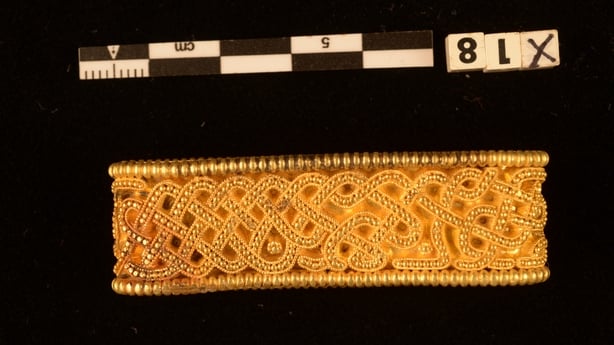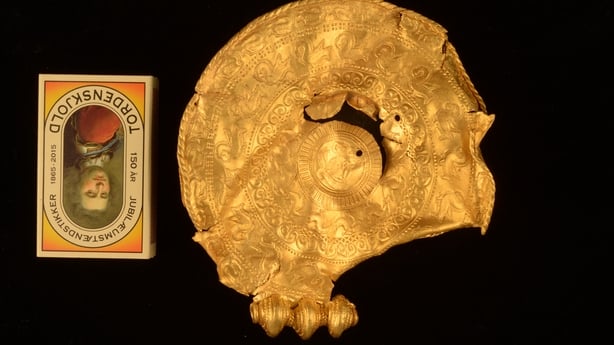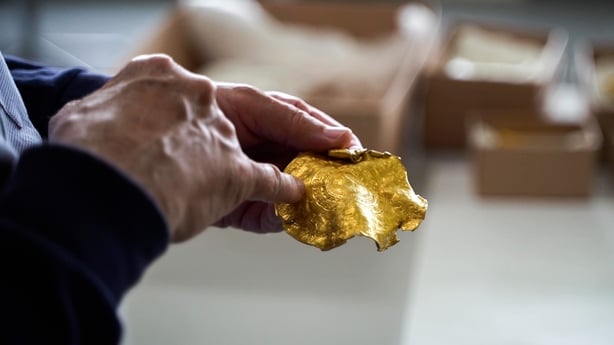An amateur archaeologist has discovered 22 gold coins with symbols from the sixth century that could yield new details about the pre-Viking peoples of Denmark, said the museum that will house the treasure.
Some of the pieces bear runic decorations and inscriptions that may refer to rulers of the time, but they also mention Norse mythology, Mads Raven, director of research at the Vejel Museums in western Denmark, told AFP.
According to Dr. Raven, “it is the symbols on the items that make them unique, more than the quantity found,” who said the treasure weighed about one kilogram.

One piece even refers to Roman Emperor Constantine from the early fourth century, said Dr. Raven.
«The find consists of a lot of gold pieces, including a medallion the size of a plate,» he added.
According to preliminary examinations, the treasure could have been buried as an offering to the gods at a chaotic time when the climate in northern Europe became dramatically cooler after a volcanic eruption in Iceland in 536 sent clouds of ash into the sky.

«They have many symbols, some of which have not been seen before, which will enable us to expand our knowledge of the people of this period,» he said.
The treasure was found near Geling in southwest Denmark, which historians say became the cradle of the Viking Age kings that lasted between the 8th and 12th centuries.
The treasure will be on display in the museum in Vejle from February 2022.

An amateur archaeologist who used a metal detector discovered the treasure about six months ago but the news has not been revealed until now.

«Lector profesional. Jugador galardonado. Aficionado a los zombis. Adicto a las redes sociales. Experto en tocino. Erudito en Internet»